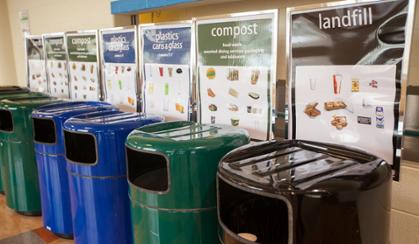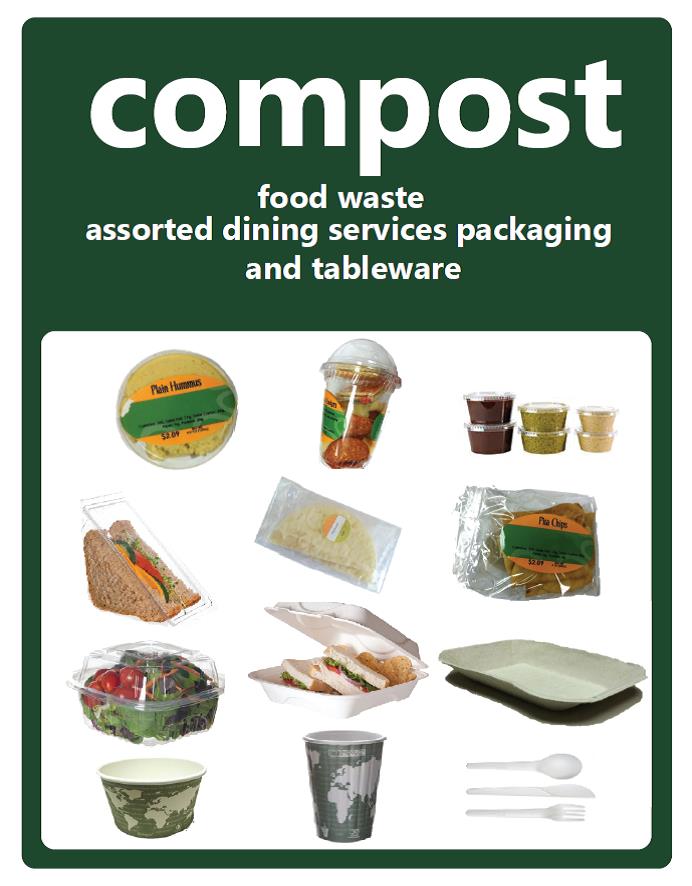Composting is the process through which organic waste, such as food, paper, and plant waste, decompose naturally--transforming into a nutrient-rich natural material that can be repurposed as soil conditioner, mulch, or land cover.
The food composting centers at the Festival Conference and Student Center, East Campus Dining Hall, Gibbons Hall as well as many other dining locations across campus have significantly reduced the amount of material that goes into the landfill. In addition to food waste, JMU has expanded its composting program to include a number of biodegradable food containers, packaging, and tableware. And while food is a major source of our composting mission, JMU also composts the land waste generated by its land maintenance.
Our History
JMU first began its composting initiative in 2010, when all composting had to be transported two hours away to a third-party composting organization based in Roanoke.
Since 2013, JMU has partnered with Black Bear Composting and expanded its composting initiative from back-of-house composting to post-consumer composting. Now, in addition to the collection that takes place behind the scenes in dining halls, students are encouraged to actively participate in food waste collection at collection centers (pictured right).Under this new partnership, JMU Dining Services collects the food waste, while Black Bear Composting is responsible for providing the necessary equipment and transporting the compost to one of two compost compactors. The compost compactors are then taken to Royal Oak in Evington, VA.

What We Do:
FM, through our partnerships with Dining Services and Black Bear Composting, composts food waste, food packaging, and land debris.
JMU collects the following compostable food waste materials:
-
- food waste
- napkins
- paper towels
- cups and containers labeled #7PLA
- dirty pizza boxes
From JMU Dining and Catering only:
-
- soda cups
- straws
- plastic cutlery
- clear bags
JMU also collects any land debris generated by the maintenance of university grounds, including:
-
- leaves
- grass clippings
- dying plant material
- weeds
- small sticks
From land waste collection, we are able to create our own mulch and soil conditioner which reduces the overall cost of maintenance materials.
What You Can Do:
Educate yourself! View the Recycling Guide to learn more about which waste materials belong in which container.
Take responsibility and do your best to place your waste in the appropriate bins!

